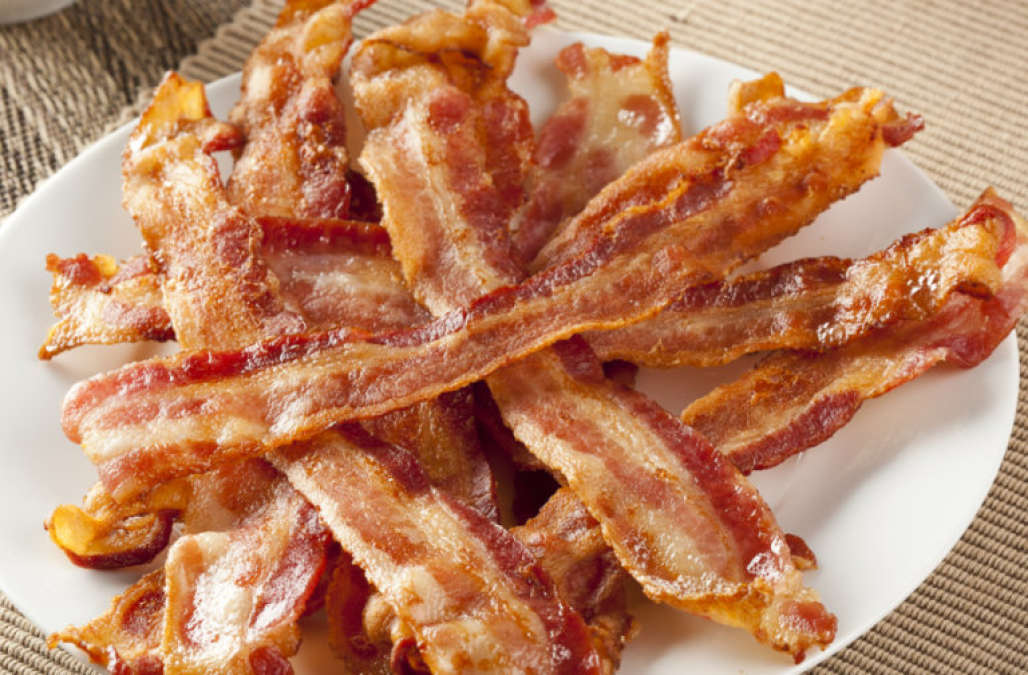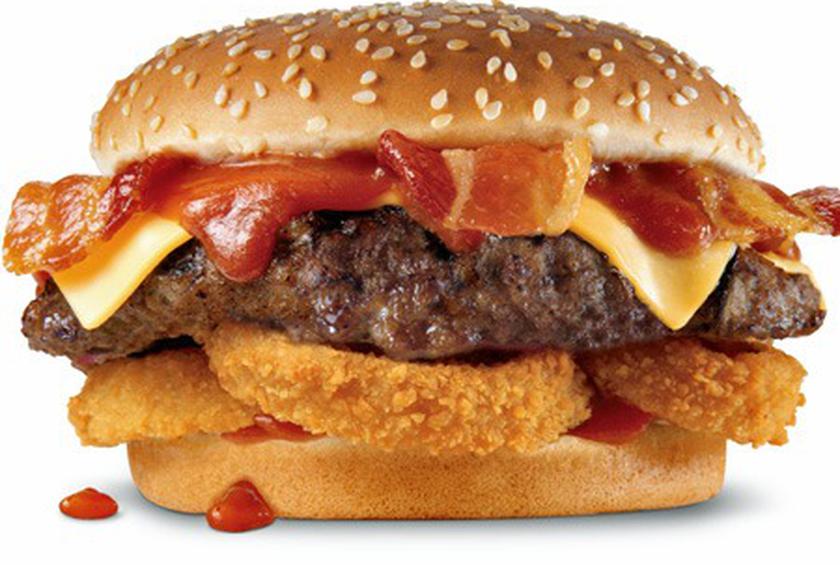- Scientist and NHS doctor demand action on cancer risk from processed meats
- They are calling for Government action to raise awareness of the health dangers
- Studies say nitrites in processed meats could be responsible for bowel cancer
A senior food scientist and top NHS doctor are urging MPs to take action and help warn the public about the cancer risk from processed meats like bacon and ham.
In a joint statement, they called for Government action to raise awareness in a similar way to campaigns on the health dangers from sugar and fatty foods.
They cited ‘a growing consensus of scientific opinion’ that nitrites in processed meats result in the production of carcinogenic nitrosamines which are believed to be responsible for bowel cancer.
A 2015 report by the World Health Organisation classed processed meats as a group one carcinogen which could cause an additional 34,000 worldwide cancer deaths a year.
New analysis suggests that this could equate to 6,600 bowel cancer cases in the UK annually.
Director of the Queen’s University Belfast Institute for Global Food Safety Professor Chris Elliott, senior cardiologist Aseem Malhotra and leading nutritionist Chris Gill of the University of Ulster were joined by politicians including Labour’s deputy leader Tom Watson in making a call for action.
‘There is a consensus of scientific opinion that nitrites in processed meats result in the production of carcinogenic nitrosamines – and therefore increase cancer risk for those who regularly consume traditional bacon and ham,’ they said.
‘For these reasons, we are concerned that not enough is being done to raise awareness of nitrites in our processed meat and their health risks, in stark contrast to warnings regularly issued regarding sugar and fattening foods.
‘A united and active front is needed from policy-makers, the food industry and the cancer-care community.’
Dr Malhotra added: ‘Nitrites are used to cure bacon and ham, but when the meat is cooked and ingested by humans they create nitrosamines.
‘When it comes to nitrosamines, there are no ifs, nor buts; they are carcinogenic. Yet, despite these facts, the vast majority of bacon on sale today still contains these dangerous carcinogens.
‘Not only this, reminiscent of the tobacco industry’s stance in the 1990s, some of those in the business of making and regulating food continue to claim that health risks from nitrite-cured meat are negligible. The evidence says otherwise.
‘Government action to remove nitrites from processed meats should not be far away. Nor can a day of reckoning for those who continue to dispute the incontrovertible facts.
‘The meat industry must act fast, act now – or be condemned to a similar reputational blow to that dealt to tobacco.’
Dr Malhotra rejected industry claims that nitrites are essential to the preservation of processed meats, pointing to the elimination of the chemicals from Parma ham production and the use of alternative natural processes by producers including Nestle in France and Finnebrogue in the UK.
Another signatory to the statement, former Labour environment spokeswoman Kerry McCarthy, urged the Government to ‘look closely at what it can be doing to raise awareness of the risks from these chemicals and persuade the food industry to make its bacon and ham safer’.
She added: ‘These chemicals do not have to be in our food – and in years to come I am sure we will look back in disbelief that we allowed their use for so long.’
What Are Nitrites and Nitrates?
The salts of nitrite and nitrate are commonly used for curing meat and other perishable produce.
They are also added to meat to keep it red and give flavour, while nitrates are used to prevent certain cheeses from bloating during fermentation.
Nitrate is found naturally in vegetables, with the highest concentrations occurring in leafy vegetables like spinach and lettuce.
It can also enter the food chain as an environmental contaminant in water, due to its use in intensive farming methods, livestock production and sewage discharge.
Nitrite in food (and nitrate converted to nitrite in the body) may contribute to the formation of a group of compounds known as nitrosamines, some of which are carcinogenic – ie, have the potential to cause cancer.
In 2015 the World Health Organisation warned there were significant increases in the risk of bowel cancer from eating processed meats such as bacon that traditionally have nitrites added as they are cured.
The current acceptable daily intake for nitrates, according to the EFSA, is 3.7 milligrams per kilogram of body weight per day.
Source:
Dailymail
EFSA
 Based on +200
reviews
Based on +200
reviews



